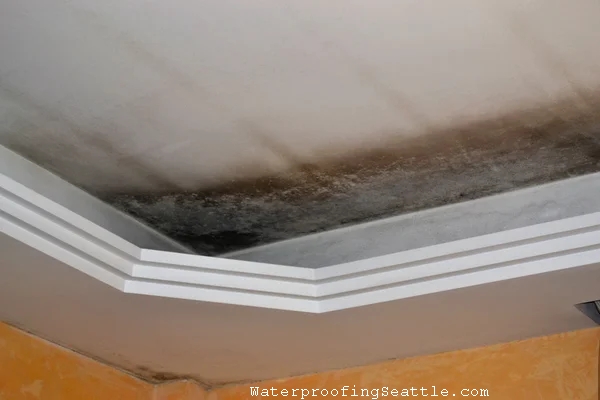
Are you tired of dealing with the costly aftermath of water damage? It’s time to take control and be proactive. Follow King County Washington’s guide to water damage prevention, and save yourself the headache of repairs and replacements.
1. Protect your home with a solid foundation. Don’t overlook the importance of gutter maintenance. Clean them regularly to ensure rainwater flows freely away from your home, preventing overflow and potential damage.
2. Check your plumbing regularly. Leaky pipes can go unnoticed for weeks or even months, causing extensive damage. Take the time to inspect your pipes for any signs of leaks, such as damp spots, mold growth, or unusual odors.
3. Invest in a sump pump. If your home is prone to flooding or you live in an area with a high water table, a sump pump is a must-have. It will automatically remove water from your basement or crawl space, keeping it dry and preventing water damage.
4. Install a water leak detection system. These innovative systems use sensors to detect leaks in your plumbing or appliances and alert you immediately. By catching leaks early on, you can prevent extensive damage and save money on repairs.
5. Seal any cracks in your foundation. Over time, cracks can develop in your foundation, allowing water to seep inside. Use waterproof sealant to close up any gaps and prevent water from entering your home.
6. Insulate pipes exposed to cold temperatures. Frozen pipes can burst and cause significant water damage. Make sure to insulate any pipes that are at risk of freezing, such as those in unheated basements or crawl spaces.
7. Don’t forget about your landscaping! Slope the ground away from your home’s foundation to ensure proper drainage during heavy rains. Additionally, consider installing a French drain system to redirect water away from your property.
Emergency Preparedness: Be Ready for the Unexpected
In addition to proactive prevention methods, it’s essential to be prepared for any water-related emergencies:
1. Have an emergency plan in place. Know how to shut off your main water supply and electricity to minimize potential damage in case of a flood or severe water leak. Make sure all household members are aware of the necessary steps to take.
2. Prepare an emergency kit. Include items like flashlights, batteries, a first aid kit, and emergency contact information. Having these essentials readily available can make a significant difference during stressful situations.
3. Stay informed about weather conditions in your area. If heavy rain or a storm is predicted, stay alert and take necessary precautions to protect your home. Being proactive can save you time, money, and stress.
4. Consider getting flood insurance. Even if you don’t live in a designated flood zone, unexpected events can still cause significant damage. Protect yourself financially by investing in flood insurance.
Maintain Your Appliances: Prevent Water Damage at the Source
Your appliances can be both convenient and potential sources of water damage. Take these measures to keep them running smoothly:
1. Regularly inspect your washing machine hoses for signs of wear and tear. Replace them every five years, or as recommended by the manufacturer. A burst hose can release large amounts of water quickly.
2. Maintain your dishwasher by cleaning filters regularly and checking for leaks around the machine. A malfunctioning dishwasher can cause significant damage if left unattended.
3. Check your refrigerator’s icemaker and water supply line for leaks or clogs. Make sure they are properly connected and functioning correctly. A small leak can lead to extensive water damage over time.
4. Don’t forget about your water heater. Have it inspected annually, and replace it if it shows signs of aging or wear. A faulty water heater can leak or burst, causing considerable damage to your home.
Basement Waterproofing: Keep Your Lower Level Dry
If you have a basement or lower level in your home, these tips will help you keep it dry and protected:
1. Install a basement waterproofing system. This can include interior or exterior drainage systems, sump pumps, and vapor barriers. A professionally-designed system will significantly reduce the risk of water damage in your basement.
2. Regularly check for cracks or signs of moisture in your basement walls or floor. If you notice any issues, seal them with waterproofing products to prevent water from seeping into your basement.
3. Keep your basement well-ventilated to reduce humidity levels. Consider using a dehumidifier to remove excess moisture from the air, reducing the risk of mold growth and water damage.
4. Store valuable belongings and important documents in waterproof containers. This extra layer of protection will give you peace of mind, knowing that even if water manages to enter your basement, your possessions are safe.
Outdoor Maintenance: Protect Your Property
Your outdoor space deserves attention too! Use these tips to prevent water damage outside:
1. Check your roof regularly for any loose or damaged shingles. Replace them promptly to avoid roof leaks during heavy rainfall.
2. Ensure your downspouts are directing water away from your foundation properly. Make sure they are free of debris and extended at least five feet away from your home’s exterior.
3. Inspect your landscaping for any potential drainage issues. If you notice areas of pooling water or soil erosion, address them promptly to prevent water damage.
4. Consider installing a rain barrel or a rain garden. These eco-friendly solutions collect rainwater and help prevent excessive runoff, reducing the risk of flooding and water damage.
